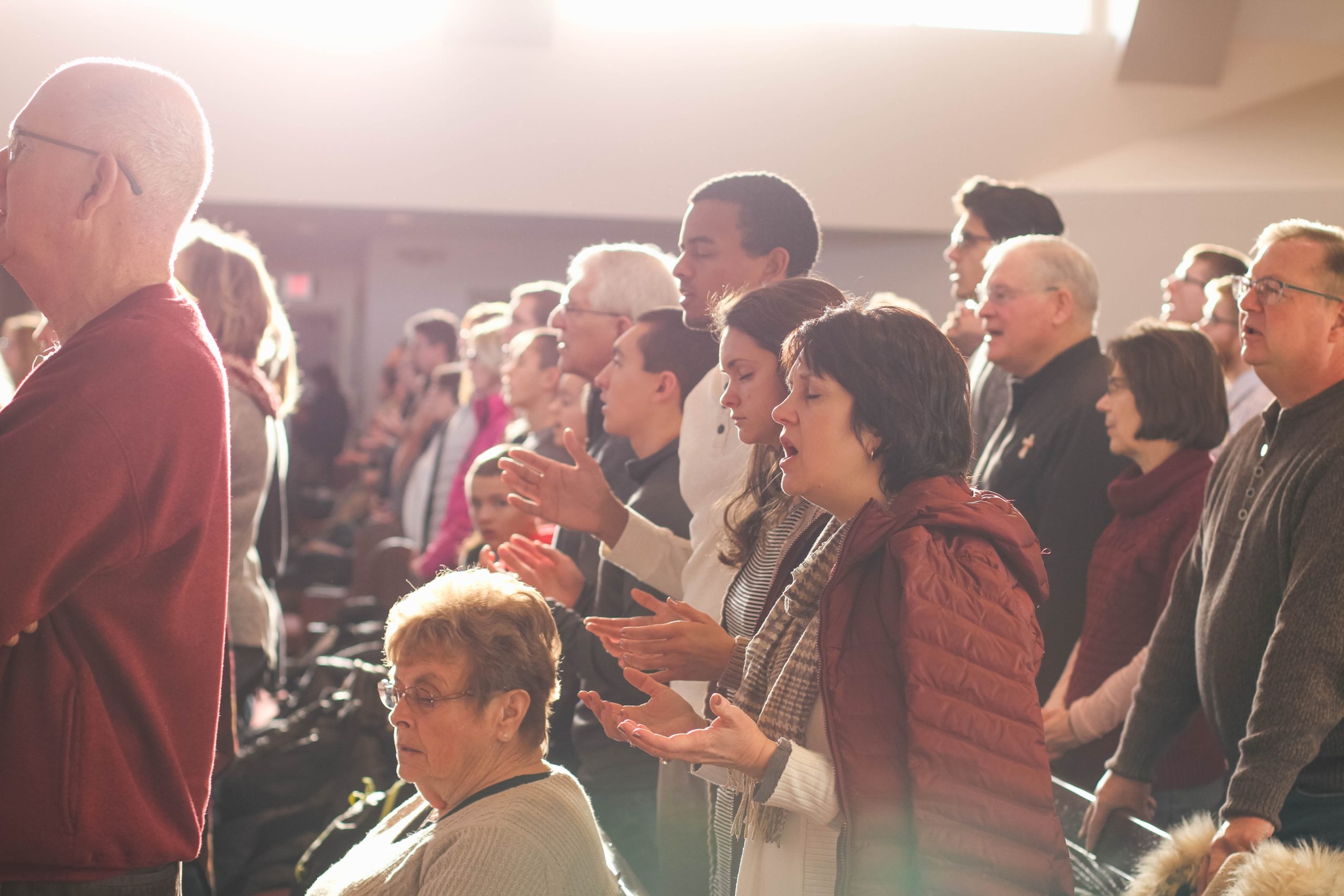
When it comes to church worship music, I have particular tastes. I’m a millennial, but I love church pipe organs and classical music. I prefer Victorian hymns and Stuart Townend songs over Hillsong and Bethel. I dislike “modern renditions” of old hymns, where the melody is slightly tweaked or a new chorus is added in between original verses. A simple piano, organ, or acoustic guitar accompaniment to “Be Thou My Vision” will do just fine; an EDM version of it sends me for earplugs.
I like to hear the voices of the congregation singing; I like choirs and four-part harmonies; I like Isaac Watts, Fanny Crosby, and a bellowing Bach toccata for an organ postlude.
But none of these things is present in my current church on a Sunday morning. And that’s okay. I’m learning to sing my heart out anyway.
Different Preferences, Same God
The worship at my current church has been hard for me. It’s louder, newer, more electric than I like; it’s much more charismatic than I’m used to. At least half the congregation raises their hands throughout the 30-minute singing time on Sundays, and often people are dancing and clapping and moving their bodies in emotionally expressive ways.
All of this was far from my comfort zone when I started attending the church five years ago, and to some extent it’s still far from my comfort zone.
In the early days I complained a lot about the worship. I could hardly bring myself to clap or raise my hands, as everyone else seemed so eager to do. It stressed me out. Sometimes I wanted to just retreat to a quiet corner of the sanctuary and pray alone.
Yet I committed to the church and committed to having a better attitude about the worship.
I began to see how beautiful it is to set aside one’s “ideal” for the sake of building unity with others, and soon I began to warm up to the worship style. While it’s still a challenge at times, I now look forward to being refreshed by the Sunday morning worship experience, rather than always being exhausted by it. I even sometimes raise my hands in worship, which (as a born-and-raised Baptist) is a big step.
What I realized is this: We may have different worship-style comfort zones, but we’re worshiping the same God. That’s why, whether we’re Presbyterian or Pentecostal, we shouldn’t let our worship preferences get in the way of our worship participation.
God is too glorious to not worship enthusiastically, even if the style of worship stretches us beyond our comfort zone.
Don’t Just Tolerate. Participate.
Putting aside preferences and embracing common, unified, God-centered worship, however uncomfortable it may be, is part of what it means to follow Jesus together. Worship in a “just me and Jesus” sense may be more comfortable, but it’s not the biblical ideal. Corporate worship is the ideal, and that is always going to be a bit messy.
Instead of lamenting that something isn’t our preference and folding our arms in protest, perhaps we can humble ourselves and participate anyway. Perhaps we can be open-minded to the diverse ways God’s people worship him, and not just tolerate but even participate in this diversity, learning to love it.
My friend Andrew is a worship leader and told me, “There is nothing like stepping into a room of people, 4 or 40 or 400, knowing that no matter what songs you sing in what keys or what arrangements, they will sing their hearts out.”
What would happen if we put aside our pickiness and just sang our hearts out?
Glorify God by Submitting to Others
The vitality of a church’s worship depends on members of the body submitting their autonomous freedom and opinionated preferences to the larger community, and ultimately to the Lord. This doesn’t mean there’s no room for discussion and disagreement and compromise when opinions on songs or liturgy clash. But it does mean that in these conflicts we abide by Paul’s Ephesians 5 call to a Christlike posture of service and humility (“submitting to one another out of reverence for Christ,” v. 21).
We glorify God by loving and serving each other in the messiness of worship. This is what Paul tried to communicate to the Corinthian believers, whose worship was often selfish and inconsiderate of others in the community (e.g., eating food sacrificed to idols in 1 Corinthians 8 or Lord’s Supper abuses in 1 Corinthians 11).
A humble and submissive posture is the heart and soul of Christian worship, because it reflects the deferential character of Christ himself. If worship is ultimately about angled-mirror reflection of God’s glory, both upward to him and outward to the world, then the self-giving, others-focused love of our worship is a huge part of this; a love that has no problem bowing the head in deference, opening the hands in release, and relinquishing one’s rights for the sake of the King.
Editor's Note: This post appeared at TGC and is an excerpt from Brett's book, Uncomfortable: The Awkward and Essential Challenge of Christian Community.

